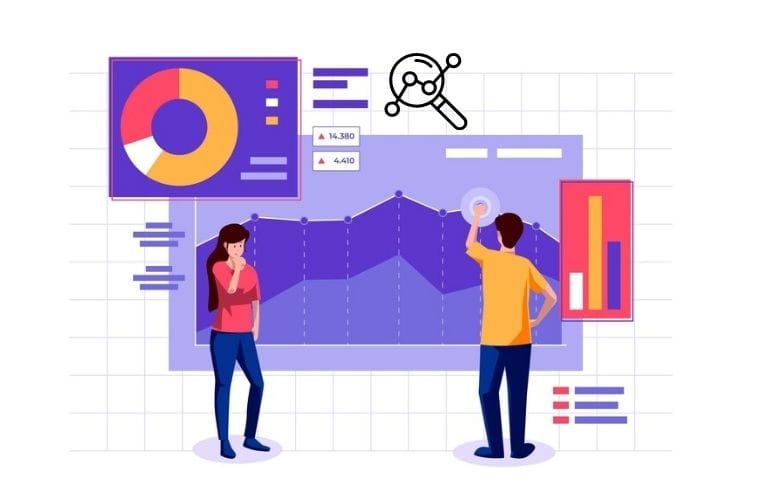Nowadays, data is quickly growing, and it is both useful and curse to have a big amount of data. Businesses can analyze and get insights to improve customers’ experience, but it can also be overwhelming to analyze the data.
However, this is where businesses consider data and analytics engineering consultants, which is a wise solution. These professionals possess the expertise to transform raw data into valuable information and help businesses optimize operations, enhance customer experiences, and drive growth.
In this guide, we will discuss the benefits of hiring a data and analytics engineering consultant.
What are the Benefits of Hiring a Data and Analytics Engineering Consultant?
In the undersection, we have mentioned the benefits of hiring a data and analytics engineering consultant.
1 – Data Integration and Management
One of the primary challenges businesses face is the integration and management of data from multiple sources. A data and analytics engineering consultant can streamline this process by developing a robust data architecture that consolidates data from various systems into a centralized repository. This ensures that all stakeholders have access to a single source of truth, reducing discrepancies and improving data quality.
2 – Data Cleaning and Transformation
Raw data often contains errors, inconsistencies, and redundancies that can skew analysis results. Consultants specialize in data cleaning and transformation techniques that rectify these issues, ensuring that your data is reliable and ready for analysis. They can automate the cleaning process through different tools and algorithms and save the business time and resources.
3 – Predictive Analytics
Predictive analytics is a powerful tool that enables businesses to forecast future trends and behaviors based on historical data. They use machine learning and statistical models to help you anticipate market changes, customer needs, and potential risks. This proactive approach allows you to stay ahead of the competition and seize new opportunities.

4 – Prescriptive Analytics
While predictive analytics tells you what might happen, prescriptive analytics goes a step further by recommending actions to achieve desired outcomes. A data and analytics engineering consultant can develop prescriptive models that provide actionable recommendations, helping you optimize processes, improve efficiency, and achieve your business goals.
5 – Process Automation
Automation is a key component of modern business operations. Data Engineers can design and implement automated workflows that reduce manual effort, minimize errors, and accelerate processes. It ensures data accuracy to achieve business goals and satisfy results. You can free up your team to focus on more strategic initiatives.
6 – Resource Allocation
Data engineers, with their expertise and skills, minimize business costs and maximize productivity. First of all, they analyze and identify the underutilized resources, and then they suggest and implement strategies for resource allocation. This ensures that your resources are deployed where they are needed most, enhancing overall efficiency.
7 – Customer Segmentation
Customer segmentation involves dividing your customer base into distinct groups based on shared characteristics and behaviours. They can identify segments that are most valuable to your business and tailor your marketing efforts accordingly. This targeted approach increases the effectiveness of your campaigns and improves customer satisfaction.
8 – Personalized Marketing
Personalization is no longer a luxury; it’s a necessity. Data Engineers can help you leverage data to deliver personalized marketing messages that resonate with individual customers. They analyze customer preferences, purchase history, and behaviour, they can create customized campaigns that drive engagement and conversion.
9 – Regulatory Compliance
Staying compliant with data protection regulations is crucial to avoiding legal penalties and maintaining customer trust. Data analytics have in-depth knowledge of regulatory frameworks such as GDPR, CCPA, and HIPAA and can ensure that your data practices adhere to these standards. They can also help you implement data governance policies that promote ethical data usage.
10 – Data Security
Data breaches can have devastating consequences for businesses. They assess your current security posture and recommend measures to safeguard your data against threats. This includes implementing encryption, access controls, and monitoring systems to detect and respond to security incidents in real-time.

11 – Market Analysis
As industry experts, data engineers measure the market analysis through tools and their expertise and help the business stay up to date and competitive. Further, they conduct comprehensive market analysis to identify opportunities and threats. As a result, they can provide you with actionable insights that inform your business strategy and help you capture market share.
12 – Innovation and Agility
Innovation is the key to staying relevant in a rapidly changing market. Data and analytics engineers help you to leverage data to drive innovation and agility within your organization. They drive innovation through the latest technologies and trends and create new opportunities for businesses to dive into new worlds of possibilities.
Closing Remarks
The benefits of employing a data and analytics engineering consultant are manifold. They specialize in data engineering and analytics that help businesses optimize operations, improve customer experience, make smart decisions, and ensure compliance.
Further, they provide invaluable support in navigating the complexities of today’s data-driven landscape. As a result, businesses can achieve their goals and gain a competitive edge. However, make smart decisions while choosing a consultant for your firm, such as their expertise and working capabilities.

